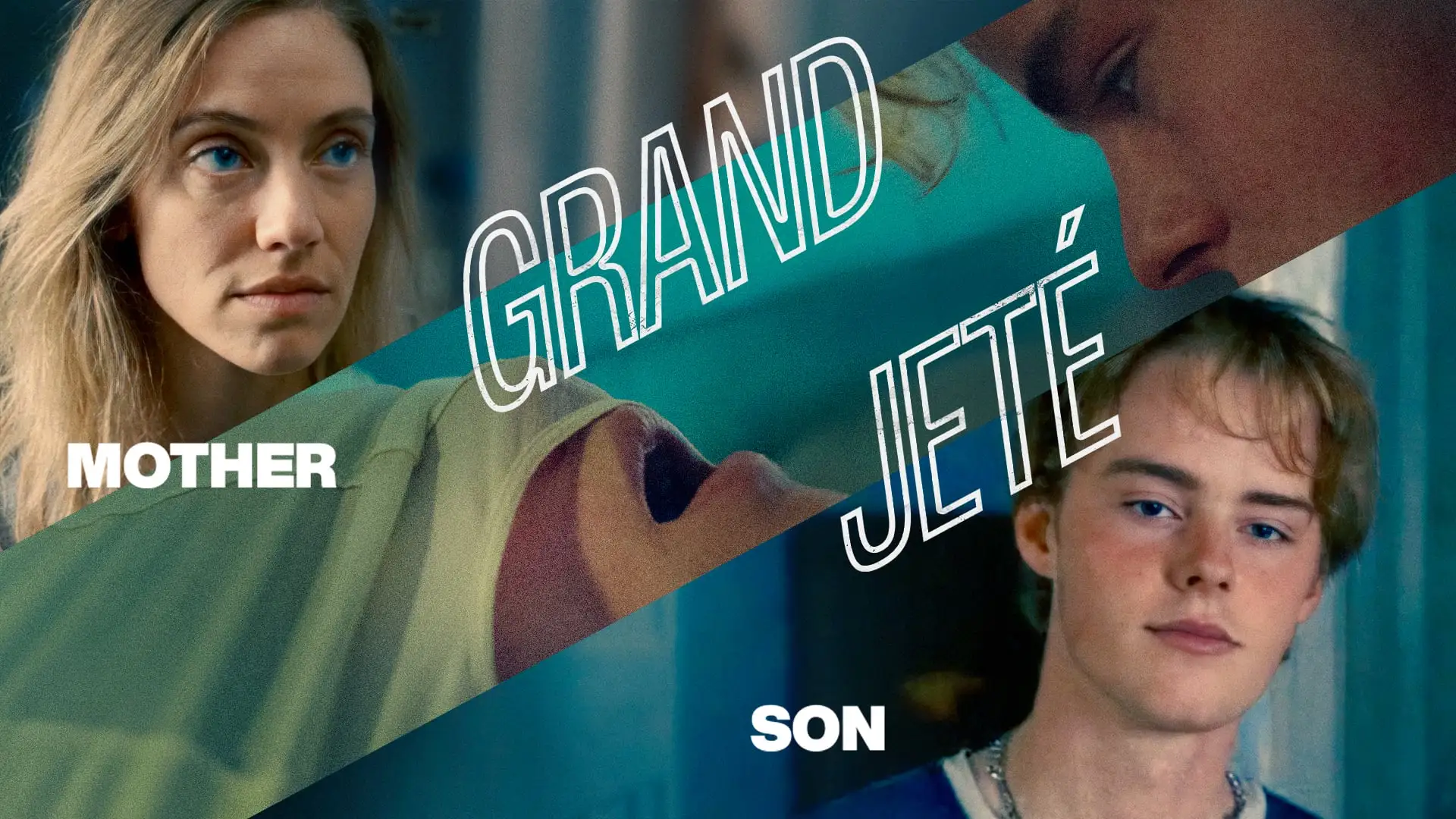Grand Jete: A Unique Exploration of an Unconventional Mother-Son Relationship
Exploring the complex dynamics of an estranged mother and son’s reunion, Grand Jete offers a transgressive narrative that captivates audiences. The film delves into the lives of Nadja, a former ballerina turned instructor, and her son Mario, whose lives revolve around their physicality. Through intimate cinematography and a lack of judgment, Grand Jete presents viewers with a perplexing story that raises questions about the nature of their relationship.
A Glimpse into Nadja’s World of Dance
Nadja, portrayed by the talented Sarah Nevada Grether, devoted her life to ballet. While she now shares her knowledge as an instructor, the toll of her strenuous career is evident. The camera zooms in on the uncomfortable details of Nadja’s body, showcasing her bent feet, rashes, and worn hands. Despite her physical discomfort, Nadja perseveres through the pain with the help of pain medication and demonstrates her precise, graceful movements to her students. Her dedication to dance is unwavering, leaving little room for other aspects of her life.
The Reunion: Nadja, Hanne, and Mario
Nadja’s rigid world is disrupted when she reunites with her estranged mother, Hanne, played by Susanne Bredehaft, and reconnects with her son, Mario, portrayed by Emil von Schanfels. Having chosen her career over raising her child, Nadja experiences a mixture of emotions towards Mario. Although there is an initial distance between them, Nadja’s curiosity sparks, and she longs to understand the son she once gave up.
Mario, who leads a life centered around his physicality, works at a gym and engages in extreme acts of endurance for additional income. He shares a parallel passion for his body, mirroring Nadja’s dedication to dance. As their relationship develops and Nadja moves back in with her mother, their connection takes a surprising turn toward a sexual nature. This newfound intimacy rejuvenates Nadja’s life, offering her experiences outside the familiar confines of the ballet studio.
An Objective Portrayal of Taboo
Grand Jete deliberately avoids sensationalizing the taboo relationship between Nadja and Mario. Instead, it presents an impartial lens that allows the events to unfold naturally without passing judgment. The film refrains from providing explicit explanations or justifications for their actions, provoking questions about the motives and underlying connections between the characters.
However, the absence of deeper insights and a lack of context can leave viewers wanting more. The film relies heavily on visual storytelling and minimal dialogue, leaving significant gaps in the exploration of the characters’ personalities and psychologies. For such a rich opportunity to dive into these complexities, Grand Jete falls short by failing to provide a compelling “why” behind their unconventional relationship.
A Missed Opportunity for Exploration
Isabelle Stever’s Grand Jete, with its tight framing and intimate approach, offers mere glimpses into the lives of its characters. While it remains objective in its storytelling, the film lacks the broader perspective needed to fully grasp the story’s significance. The audience yearns for a clearer sense of purpose a stance to take, a judgment to form, or an understanding of how and why this unique relationship unfolds.
The film’s objective nature and lack of commentary leave the viewer desiring a more substantial engagement with the subject matter. It is easy to wish for a side to take or for the film to provide thought-provoking insights that linger after the credits roll. Grand Jeté could have benefited from a deeper exploration into the characters’ emotions, motivations, and the broader social implications of their actions.
Experience Grand Jete at Laemmle Royal and Laemmle NoHo
For those intrigued by the thought-provoking narrative of Grand Jete, the film will premiere at Laemmle Royal in Los Angeles on September 20. This special screening will be followed by a Q&A session featuring actor Sarah Nevada Grether. Additionally, the film will run for a week at Laemmle NoHo starting September 23. For those unable to attend the theatrical release, Grand Jete will be available on VOD starting October 25, 2022.
Frequently Asked Questions
1. Is Grand Jete based on a true story?
No, Grand Jete is a work of fiction that explores the complexities of an unconventional relationship between a mother and son. Although not rooted in reality, the film prompts discussions about taboo topics and the boundaries of human connection.
2. How would you describe Grand Jete’s visual style?
Grand Jete’s visual style is characterized by its intimate and tightly framed shots. Through this approach, the film emphasizes the physicality and vulnerability of its characters, allowing viewers to explore their world with a heightened sense of closeness.
3. Does Grand Jete offer any insights into the characters’ motivations?
Grand Jete intentionally leaves the characters’ motivations open to interpretation. By refraining from offering explicit explanations, the film invites the audience to analyze the complexities of the relationship and explore their own interpretations of the character’s actions.
4. How does Grand Jete handle the taboo nature of the mother-son relationship?
Grand Jete takes an impartial approach to the taboo relationship, presenting it without judgment or sensationalism. The film allows the audience to observe the unfolding events and form their own perspectives, leaving room for introspection and contemplation.
5. What is the significance of the film’s title, Grand Jete?
The term “grand jete refers to a ballet movement characterized by a high leap. In the context of the film, the title symbolizes the characters’ leaps beyond societal norms and established boundaries, exploring the depths of their connection and the potential for transformation.
A Captivating Exploration of Complexities
Grand Jete offers a unique and thought-provoking examination of an unconventional mother-son relationship. Through the lens of an impartial observer, the film presents audiences with a glimpse into the lives of Nadja and Mario, two individuals whose devotion to their physicality leads them down a path that defies societal norms. While the film misses some opportunities for deeper exploration and context, it remains a captivating narrative that stimulates discussions about the complexity of human connections.


